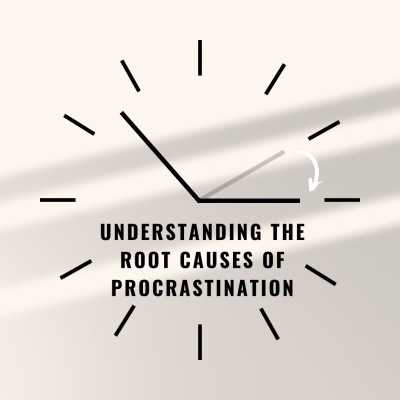Intuition vs. Logic in Decision-Making | Finding the Right Balance
When faced with important decisions, we often find ourselves torn between two seemingly opposing forces: intuition and logic. Should we rely on the cold, hard facts, or should we trust our gut instincts?
The truth is, both intuition and logic have vital roles to play in decision-making. The key is finding the right balance between the two. In this blog post, we’ll explore the nature of intuition and logic, how they influence our choices, and how to harness both to make well-rounded decisions.
By the end, you’ll have a clearer understanding of when to trust your intuition, when to lean on logic, and how to blend the two for optimal outcomes.
Understanding Intuition and Logic
Before we dive into how to balance intuition and logic, let’s take a closer look at what these terms actually mean.
What Is Intuition?
Intuition is often described as a “gut feeling” or an instinctual response that arises without conscious reasoning. It’s the sense that something is right or wrong, even if you can’t immediately explain why.
Intuition is quick, automatic, and often based on our experiences, emotions, and unconscious knowledge. While intuition may seem mysterious or even unreliable, it can be incredibly powerful.
Our brains are constantly processing information, even when we’re not consciously aware of it. Intuition taps into this vast reservoir of subconscious data, allowing us to make swift decisions based on patterns our minds have recognized over time.
What Is Logic?
Logic, on the other hand, is the process of reasoning through a situation based on objective facts, data, and analysis. It involves deliberate, conscious thought, often requiring time and effort to weigh the pros and cons of each option. Logical decision-making is systematic, methodical, and typically follows a clear, step-by-step process.
Logic is the foundation of rational thinking, helping us to evaluate evidence, consider potential outcomes, and arrive at conclusions that are supported by solid reasoning.
The Strengths and Limitations of Intuition and Logic
Both intuition and logic have their strengths and limitations, which is why relying solely on one or the other can sometimes lead to suboptimal decisions.
The Strengths of Intuition
Speed
Intuition allows us to make quick decisions without needing to analyze every detail. This can be especially valuable in situations where time is of the essence, such as in emergencies.
Emotional Insight
Intuition is deeply connected to our emotions and can provide valuable insights into how we truly feel about a situation. This can help ensure that our decisions align with our personal values and desires.
Experience-Based
Intuition draws from our accumulated experiences, making it a useful tool when facing decisions in familiar situations. Over time, our instincts become finely tuned to recognize patterns and outcomes that may not be immediately obvious through logic alone.
The Limitations of Intuition
Biases
Intuition can be influenced by cognitive biases, such as confirmation bias or the availability heuristic, leading us to make decisions based on incomplete or skewed information.
Lack of Objectivity
Because intuition is rooted in emotions and experiences, it may not always be objective. This can lead to decisions that feel right at the moment but don’t hold up under scrutiny.
Unexplained Confidence
Intuitive decisions can sometimes be made with a sense of certainty, even when there’s little evidence to back them up. This can lead to overconfidence and potentially poor outcomes.
The Strengths of Logic
Objectivity
Logic relies on objective data and facts, helping us to make decisions that are grounded in reality. This can reduce the influence of emotions and biases, leading to more rational outcomes.
Thoroughness
Logical decision-making encourages us to consider all relevant information, weigh the pros and cons, and carefully evaluate potential consequences. This methodical approach can help us avoid impulsive or poorly thought-out choices.
Predictability
By following a logical process, we can make decisions that are more predictable and consistent, which is particularly important in complex or high-stakes situations.
The Limitations of Logic
Time-Consuming
Logical decision-making can be slow and labor-intensive, requiring significant time and effort to gather and analyze information. In fast-paced environments, this can be a disadvantage.
Paralysis by Analysis
Over-reliance on logic can lead to analysis paralysis, where the sheer volume of information and options makes it difficult to make a decision at all.
Disconnection from Emotions
While logic is valuable, it can sometimes lead to decisions that are disconnected from our emotions and personal values. This can result in choices that are technically sound but don’t feel right on a deeper level.
Finding the Right Balance Between Intuition and Logic
Given that both intuition and logic have their strengths and weaknesses, how can we strike the right balance between the two? Here are some practical tips to help you navigate this delicate balancing act.
Know When to Trust Your Intuition
Intuition is particularly useful in situations where you need to make quick decisions or when you’re dealing with familiar scenarios. If you’ve faced a similar situation before and your instincts are telling you something, it’s often worth listening to that gut feeling. However, it’s important to be aware of the potential for bias.
If your intuition is pushing you in a certain direction, take a moment to consider whether any biases might be at play. If the situation is high-stakes or unfamiliar, it may be wise to bring logic into the equation.
Use Logic to Validate Your Intuition
One effective way to balance intuition and logic is to use logic as a tool to validate your intuitive feelings. If your gut tells you something, take the time to gather data, analyze the facts, and see if they support your intuition. For example, if you’re considering a new job offer and your intuition says it’s the right move, use logic to examine the company’s financial health, work-life balance, and growth opportunities. If the facts align with your gut feeling, you can move forward with greater confidence.
Start with Logic, Then Check In with Your Intuition
In situations where logic is essential - such as making a financial investment or planning a major project - it can be helpful to start with a logical analysis. Gather all the relevant information, weigh the pros and cons, and develop a well-reasoned plan. Once you’ve done the logical groundwork, take a moment to check in with your intuition.
- Does the decision feel right?
- Are there any nagging doubts or concerns that your logical analysis didn’t address?
By combining logic with intuition, you can make a more holistic decision.
Be Mindful of Emotional Triggers
Emotions can have a significant impact on both intuition and logic. If you’re feeling particularly stressed, anxious, or excited, it can skew your decision-making process. Being aware of your emotional state can help you determine whether to lean more on intuition or logic.
For instance, if you’re making a decision while feeling emotionally charged, you might want to rely more on logic to avoid impulsive choices. Conversely, if you’re feeling calm and centered, your intuition may be more reliable.
Practice Decision-Making in Low-Stakes Situations
One of the best ways to improve your ability to balance intuition and logic is through practice. Start by applying these principles in low-stakes situations, where the consequences of your decision are relatively minor. As you become more comfortable using both intuition and logic, you’ll develop a better sense of when to rely on each - and how to blend the two effectively in more significant decisions.
Reflect on Past Decisions
Take time to reflect on past decisions you’ve made, both good and bad. Consider the role that intuition and logic played in each case.
- Did you rely too heavily on one over the other?
- What was the outcome?
By analyzing your past decision-making processes, you can gain insights into your natural tendencies and identify areas for improvement. This self-awareness will help you strike a better balance in future decisions.
Embracing the Power of Both Intuition and Logic
Intuition and logic are both invaluable tools in the decision-making process. Rather than viewing them as opposing forces, think of them as complementary aspects of your decision-making toolkit.
By understanding the strengths and limitations of each, you can learn to use them in harmony, making decisions that are both well-reasoned and aligned with your inner values.
The key to effective decision-making isn’t choosing between intuition and logic - it’s knowing when and how to use each. By finding the right balance, you can make decisions that are not only smart, but also true to yourself. And ultimately, that’s what confident, authentic decision-making is all about.






Leave a comment